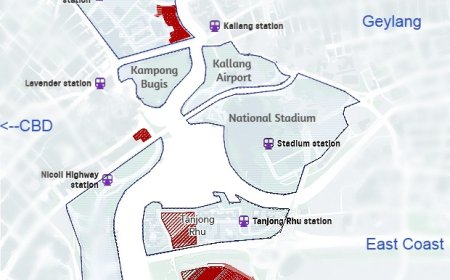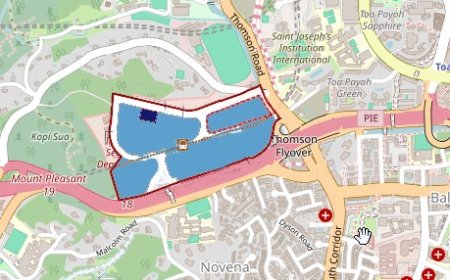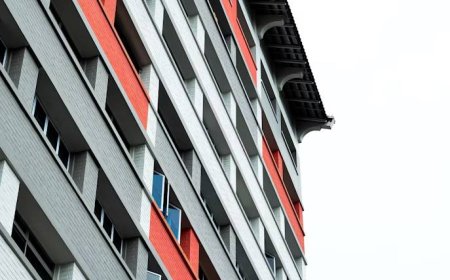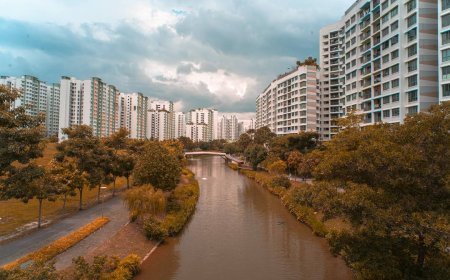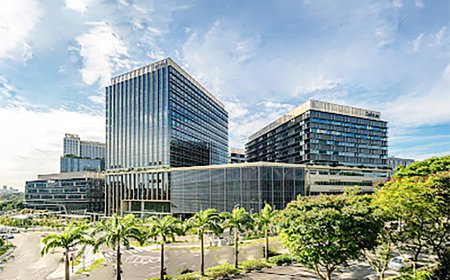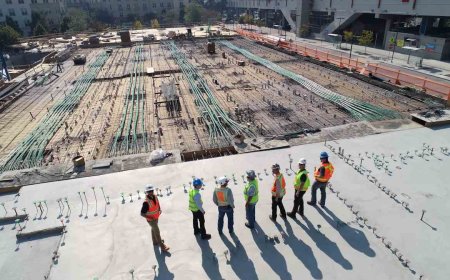A Complete Guide to Property Conveyancing in Singapore for Buyers and Sellers
Learn Singapore property conveyancing from start to finish. Step-by-step guide for HDB, private property, and commercial transactions. Understand OTP, S&P, stamp duties, and completion.

Singapore Property Conveyancing: A Complete and Detailed Guide for Buyers, Sellers, and Investors
Purchasing your first HDB flat, investing in a private condominium, or selling a landed property are among the most significant financial decisions you will make in Singapore. Each transaction involves a substantial sum of money and critical legal obligations. Ensuring a smooth, legally compliant process is vital, and this is where conveyancing comes in.
This article provides a comprehensive step-by-step guide to property conveyancing in Singapore, covering HDB flats, private properties, and commercial transactions, with examples, tips, and recommendations for all property buyers and sellers.
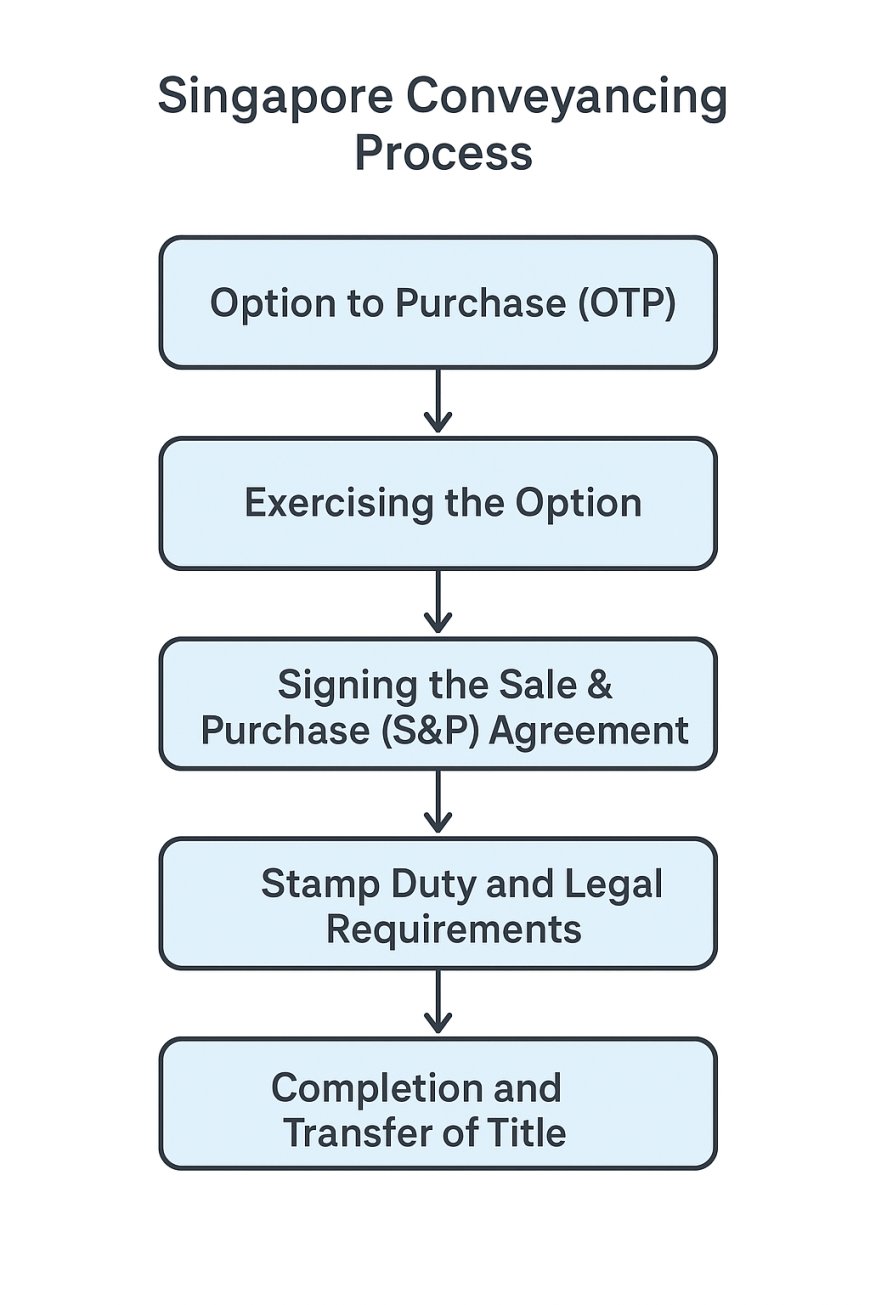
1. What is Property Conveyancing?
Property conveyancing is the legal process by which the ownership of a property is transferred from the seller to the buyer. In Singapore, all property transactions, including sales, purchases, mortgages, and leases, involve conveyancing.
Conveyancing ensures:
-
Legal compliance: All property transactions follow Singapore property law.
-
Risk mitigation: Checks are conducted to prevent disputes, fraud, or defective titles.
-
Proper transfer of rights: Ownership and beneficial interests are correctly assigned to the buyer.
Conveyancing Applies to:
-
Sale and purchase of HDB flats
-
Purchase or sale of private properties (condominiums, landed houses)
-
Property refinancing or mortgage arrangements
-
Execution of lease agreements
Example: A couple buying their first HDB flat must verify that the seller has full legal ownership, confirm that there are no outstanding loans, and ensure the flat is eligible for transfer according to HDB regulations.
2. Understanding Property Ownership in Singapore
Before diving into conveyancing, it is essential to understand the types of property ownership in Singapore:
| Type of Ownership | Definition | Key Advantages | Typical Properties |
|---|---|---|---|
| Freehold | Ownership in perpetuity | Property can be inherited indefinitely; most secure | Private landed houses, select condominiums |
| Leasehold | Ownership for a fixed period (usually 99–999 years) | Lower cost compared to freehold; transferable | Most HDB flats, many condominiums |
Tip: Leasehold properties lose value as the lease shortens. Check the remaining lease period for mortgages, resale eligibility, and long-term investment planning.
Scenario Example 1: A first-time HDB buyer checks that the flat has at least 60 years of remaining lease to ensure CPF financing eligibility and future resale potential.
3. The Step-by-Step Singapore Conveyancing Process
Step 1: Background Research and Due Diligence
Before committing to a property transaction, the conveyancing lawyer performs extensive due diligence, including:
-
Title searches: Confirm the seller’s ownership
-
Check for encumbrances: Ensure no mortgages, caveats, or disputes exist
-
Verify good root of title: Ensure the property was legally acquired
-
Review property tenure: Confirm leasehold or freehold status and remaining lease period
-
Confirm eligibility: Check if buyers meet HDB or regulatory requirements
Example: A buyer discovering a caveat lodged on a property can work with the lawyer to resolve the issue before completing the purchase.
Benefits: Prevents future disputes, ensures compliance, and provides peace of mind for all parties involved.
Step 2: Option to Purchase (OTP)
The Option to Purchase (OTP) is a legal instrument granting the buyer the exclusive right to purchase the property at a specified price within a defined timeframe (usually 14–21 days).
Key Details in an OTP:
-
Option fee: 1% of purchase price for private property, 5% for new launches
-
Exercise period: Timeframe to decide on exercising the option
-
Property inspection rights: Right to view and inspect the property
-
Other conditions: Payment terms, obligations, and legal clauses
Scenario Example 2: A buyer interested in a $1 million condominium pays an OTP fee of $10,000. During the 14-day period, the buyer ensures property legality, financing, and due diligence before exercising the option.
Tip: Engage a conveyancing lawyer to review the OTP carefully. Lawyers can negotiate better terms and ensure your legal rights are protected.
Step 3: Exercising the Option and Making Payments
Once the buyer decides to proceed:
-
Pay the deposit: Typically 4% for completed properties
-
Sign the Sale & Purchase (S&P) Agreement: Legally binding agreement outlining transaction terms
-
Conveyancing funds management: Deposits and payments are managed securely by the lawyer
Benefits: Ensures transparency and proper management of large sums, preventing financial disputes.
Step 4: Stamp Duty and Legal Compliance
In Singapore, stamp duty is mandatory and must be paid within 14 days of signing the OTP or S&P Agreement.
Factors affecting stamp duty:
-
Property value
-
Buyer’s residency status
-
Additional Buyer’s Stamp Duty (ABSD) for foreigners or multi-property owners
Tip: Budget for stamp duty and ABSD early to avoid delays in property completion.
Step 5: Completion and Transfer of Title
The final step completes the legal transfer of property ownership:
-
Final payment: Typically 95% of the purchase price
-
Key handover: Buyer receives possession
-
Execution of transfer documents
-
Issuance of new Certificate of Title
Scenario Example 3: A buyer finalizes payment for a private condominium. The lawyer ensures all documents are executed, the property keys are handed over, and the title is updated at the Land Registry.
4. HDB Conveyancing: Special Considerations
HDB transactions involve additional regulations, requiring specialized expertise:
-
HDB legal department cannot act in cases involving:
-
Bank mortgages
-
Divorce or death of an owner
-
Special arrangements
-
Tip: Use experienced HDB conveyancing lawyers to ensure compliance and smooth property transfer.
5. Conveyancing Fees in Singapore
| Type | Typical Fees (SGD) | Notes |
|---|---|---|
| Standard residential | $1,500 – $2,500 | Includes S&P preparation, document checks |
| Complex transactions | Up to $5,000 | May include registration, stamp duties, or refinancing services |
Tip: Choose lawyers with transparent and fixed fees to avoid hidden charges.
6. Commercial vs Residential Conveyancing
| Type | Key Considerations | Examples |
|---|---|---|
| Commercial | Leases, business premises, investment property | Office units, retail stores, industrial facilities |
| Residential | Private homes, HDB flats, condos | Executive condos, landed houses, HDB resale |
7. Common Challenges and Solutions
| Challenge | Solution | Benefits |
|---|---|---|
| Defective title | Negotiate with seller or seek legal remedy | Ensures legal ownership and prevents disputes |
| Financing issues | Coordinate with banks and CPF | Prevents delays in completion |
| Completion delays | Negotiate extensions, calculate interest | Protects both buyer and seller interests |
8. Why Professional Conveyancing Services Matter
Professional conveyancing lawyers:
-
Review contracts and S&P agreements
-
Identify and mitigate legal and financial risks
-
Coordinate with banks, government agencies, property agents
-
Manage conveyancing funds securely
Benefits: Protects your investment, ensures compliance, and prevents costly mistakes.
9. Conveyancing Lawyer vs Property Lawyer
In Singapore, all conveyancing work must be conducted by qualified advocates and solicitors. Responsibilities include:
-
Conducting property searches and title verification
-
Preparing and reviewing all legal documents
-
Managing conveyancing funds and CPF withdrawals
-
Ensuring compliance with SLA, IRAS, and HDB regulations
-
Coordinating completion and registration
Tip: Select a lawyer experienced in your property type and transaction complexity.
10. Choosing the Right Conveyancing Lawyer
Key Considerations:
-
Proven experience in conveyancing law
-
Track record of successful property transactions
-
Clear and frequent communication
-
Transparent fees with no hidden charges
-
Availability for urgent matters via phone or email
Tip: A reliable lawyer reduces stress and ensures smooth completion.
11. Key Takeaways
-
Conveyancing is essential for property transactions.
-
Understanding property ownership types (freehold vs leasehold) is critical.
-
Lawyers ensure compliance with laws, HDB rules, and regulations.
-
Proper conveyancing prevents legal disputes, title issues, and financing problems.
-
Budget for stamp duties, ABSD, and conveyancing fees in advance.
Algene Toh
Disclaimer: The information presented on BSR2.com is intended for general informational purposes only. It does not constitute legal, financial, investment, or real estate advice and should not be relied upon as such. While every effort has been made to ensure the accuracy, reliability, and completeness of the content at the time of publication, all data is derived from publicly available sources and may be subject to change without notice. BSR2.com makes no representations or warranties of any kind, express or implied, regarding the suitability, timeliness, or accuracy of the information provided for any specific purpose. Users are strongly encouraged to seek independent advice from qualified professionals before making any decisions based on the content found on this website. BSR2.com shall not be held liable for any loss, damage, or consequence, whether direct or indirect, arising from the use of or reliance on the information provided. The content is intended as a general guide and does not take into account individual circumstances.
What's Your Reaction?
 Like
0
Like
0
 Dislike
0
Dislike
0
 Love
0
Love
0
 Funny
0
Funny
0
 Angry
0
Angry
0
 Sad
0
Sad
0
 Wow
0
Wow
0

